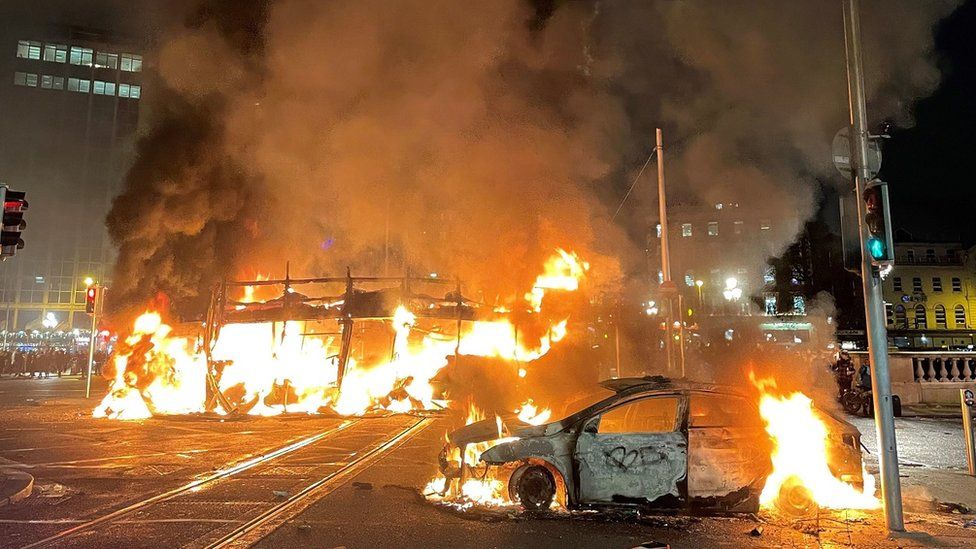-

-
-
Loading

Loading

The recent rioting in Dublin city centre has been attributed to a far-right faction by the Republic of Ireland's police chief. The disorder occurred shortly after a stabbing incident involving three children and a school care assistant near a primary school. The rise of the far-right movement in Ireland, a country known for its hospitality, raises questions about what is fueling this ideology. To understand this, we must look back nearly two centuries when many Irish people left the country in search of better opportunities elsewhere. Migration has always been a significant aspect of Irish history, with millions leaving the island due to poverty, famine, and personal reasons. The Irish were among the many who sought refuge in countries like the United States, the United Kingdom, and Australia. Until recently, emigration was a common occurrence in Irish life. However, in the past two decades, there has been a significant shift due to EU enlargement and increased immigration from countries such as India, Brazil, the Philippines, and Nigeria. According to the latest statistics, one fifth of the population in the Republic of Ireland was born abroad. While migration has not been a prominent topic in Irish politics, there has been a growing concern about the far-right's exploitation of issues such as a housing shortage, cost of living crisis, and fears surrounding asylum seekers. However, it is important to note that there is no mainstream political figure comparable to Marine Le Pen or Geert Wilders in Ireland, partly due to the Irish population's memory of emigration and their desire to welcome newcomers. Recent incidents involving far-right protestors blocking entrances to parliament and protesting against housing for asylum seekers have raised concerns about public order and the influence of the far-right movement. It is worth noting that no far-right politician has been elected to office in Ireland, and there is no unifying figure or party for the extremist movement. While social media has played a role in mobilizing the far-right movement, not all individuals involved in the recent violence were political extremists, with opportunistic criminals taking advantage of the chaos. Nevertheless, there is likely to be an impact on policing and politics as the police adopt a tougher approach towards far-right activists, and politicians discuss the need to control the flow of refugees into the country. However, most people in Ireland are likely to maintain a balanced perspective, considering the challenges associated with both recent immigration and the historical experience of emigration. The emphasis remains on offering a warm welcome rather than witnessing mass emigration of the Irish "huddled masses" to foreign lands.